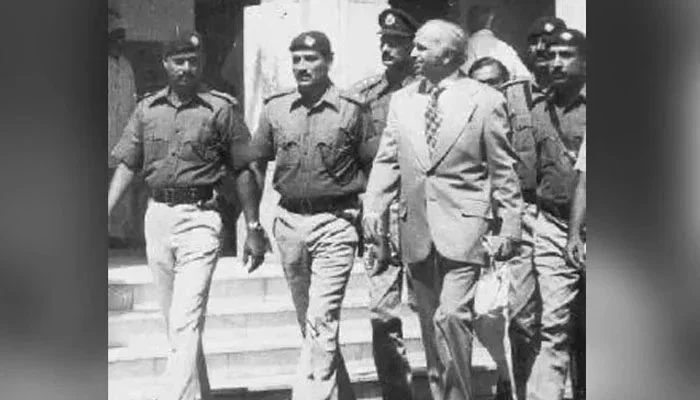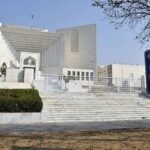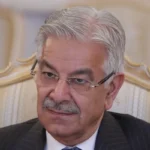On April 4, 1979, Zulfikar Ali Bhutto, the elected prime leader of Pakistan, was assassinated by a judge. This, the most heinous and terrible episode in our history, was decided upon by a divided 4–3 court.
In his pursuit of absolute power, a despot was keen to demolish any example of a popular leader who commanded the hearts and minds of Pakistanis. Before being executed, Bhutto endured months of mistreatment and humiliation in dimly lit jail cells; nonetheless, the courageous leader remained unwavering and would not compromise his beliefs for the rest of his life.
Bhutto shown unwavering bravery and proved that he would never hesitate to give his life in defense of his country and its citizens.
Strong international criticism was expressed for the judicial assassination of an elected prime minister. Bhutto had a brief life yet left a lasting impression on the world scene. His contributions to Pakistan’s prosperity are still highly regarded and unparalleled today.
Following the fall of Dhaka in 1971, Zulfikar Ali Bhutto assumed leadership of a nation that was split. Vested interests that opposed Pakistan’s very existence had been greatly bolstered by the division of East Pakistan, and they were looking forward to the country’s continued disintegration and devastation, which was very much in sight.
Bhutto changed all that and achieved even more. He soon inspired and revitalised a defeated nation, and made it rise again within a few years. He gave the people of Pakistan a sense of security and put to rest all doubts about the integrity and viability of Pakistan as a united, independent country.







